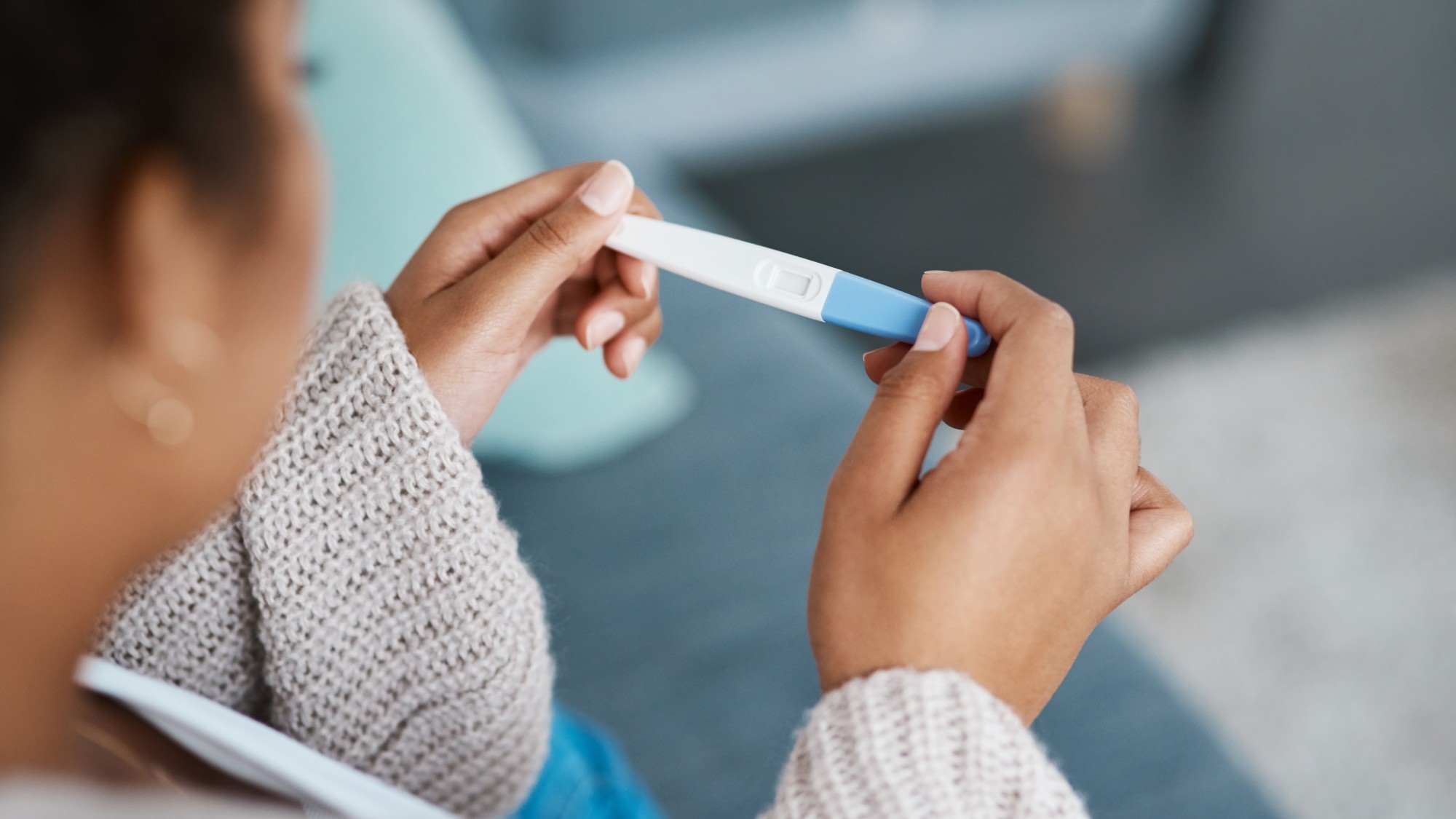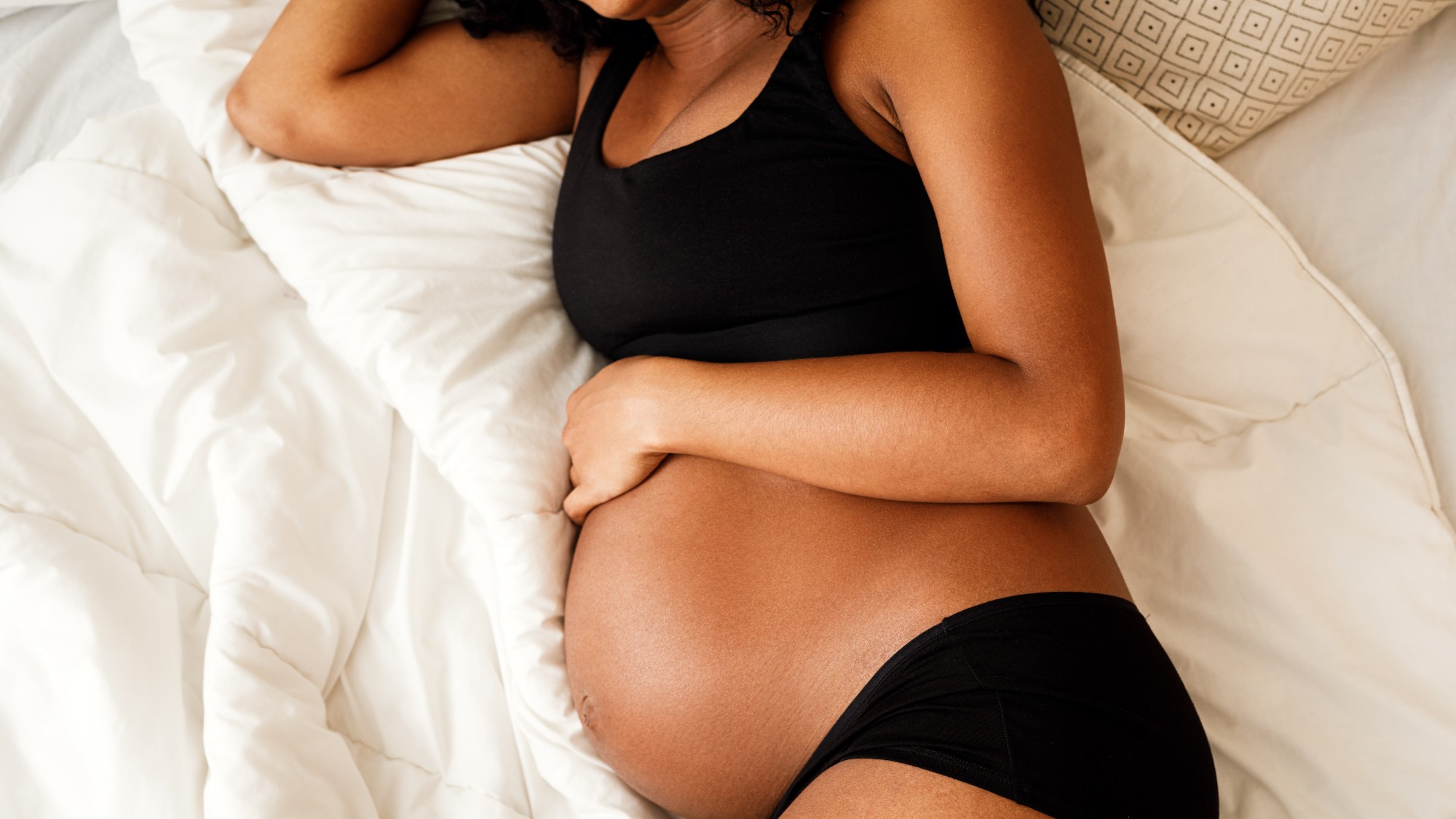Worrying about your fertility? One doctor wants to ease your concerns
Is the sense of time slipping away prompting you think about your fertility? You're not alone. Read a doctor's guide to managing your fertility and easing stress.

Is the sense of time slipping away prompting you think about your fertility? You're not alone. Read a doctor's guide to managing your fertility and easing stress.
It's a sad fact of life that one in seven couples will have difficulty conceiving. That, paired with three nationwide lockdowns and a sense of lost time, is prompting many women across the UK to worry about their fertility. But, question: what is fertility, what affects it, and when is it important to see a professional about your concerns?
From the development of an at-home fertility kit, to clever period tracking tools, we've come a long way in understanding fertility in the last few years alone. While it's not a foremost concern for all, having a family, for many others, is really important, as is the ability to do so naturally and without the added stress of procedures like IVF. But with so much information out there, it can be difficult to sort between fact and fiction.
So to ease your worries, we've reached out to a qualified doctor and a psychologist to address why, right now, you may be feeling more stressed about your fertility than before.
Know you're not alone, and if you are experiencing fertility problems, there are plenty of options and support networks set up to help you. The Fertility Network is the UK's leading charity on the matter, but the Fertility Foundation, Create Fertility, and the Human Fertilisation and Embryology authority also offer great resources designed to support those in need.
In the meantime, keep reading for expert-led advice on what you need to know about your fertility, when you should consider seeing a doctor, and more.
What is fertility?
According to general practitioner and homeopath, doctor Eric Asher, the basic medical definition of female fertility refers to a woman’s capacity to conceive, maintain a healthy pregnancy and deliver a healthy child.
Marie Claire Newsletter
Celebrity news, beauty, fashion advice, and fascinating features, delivered straight to your inbox!
You'll know that a woman's level of fertility can fluctuate through her life – take the menopause, for example. "The cessation of your periods – for anything over twelve months – normally marks your menopause and the end of your fertile life," the doctor explains.

What can affect a woman's fertility?
A whole number of things, including genetic predisposition, stress, health, and more. It's important to note here that every woman's fertility is different, and will be affected by different factors – this article is not a replacement of seeing a professional for one-to-one advice.
Asher breaks down the most common things that affect fertility for you here.
1. Mental and emotional factors
"Mental would include optimism and pessimism," he shares.
Whereas emotional, on the other hand, refers to feelings which can interact with the limbic system, the hypothalamus, the pituitary and the ovaries. "Rabbits under profound stress can resorb (absorb) a foetus. In humans, it renders ovulation more difficult," the doctor explains.
So, learning to release hostile feelings in a controlled fashion is a way to treat 'spiritual constipation', the doctor shares. Self-care, looking after your mental health, and making sure you're not experiencing chronic stress are all important on this front.
2. Metabolic factors
This covers your consumption, says the doctor, alongside your bodies' processing and elimination of nutrients, toxins and metabolic waste.
"If your waist to height ratio is anywhere over 50%, problems do begin to arise," he explains. At 60%, they are almost inevitable.
"Fatty liver can be a factor in Polycystic Ovary Syndrome, which can affect fertility," the doctor adds. But, focusing on your diet and consuming a good balance of slow release carbs, good quality protein and healthy fats can reverse many cases. Plus, exercise helps – "it decreases the layers of difficulties as well as supporting your mental health, so shouldn't be underrated," adds Asher.
3. Mechanical factors
These are physical bodily factors preventing you from getting pregnant. "These could include scar tissue blocking the passage of the ovum into the uterus, for example," shares the doctor.
Conditions like endometriosis is not a rare cause of infertility, he adds. "Endometriosis scarring means women who suffer will face possible mechanical obstruction to pregnancy."
"In my experience, one of the biggest factor is stress," explains doctor Asher. Increased anxiety only raises your stress hormones in the body, like cortisol, adrenaline, and adrenaline. These impact your hormone balance, blood pressure, and blood flow, which can, in turn, affect the ability to conceive.
How do I know if I'm having fertility problems?
Again, good question. You can't know unless you've visited a medical professional, so do make sure, if you have any concern, that you get an appointment booked in ASAP.
"The likelihood of a couple of childbearing age getting pregnant within a year lies between 80 and 90%," explains doctor Asher. This is assuming, of course, that you're having unprotected sex reasonably frequently, say once a week.
If you've been trying to get pregnant for around a year now, to no success, Asher explains that you should go to a doctor to examine three things: your fertility, your partner's fertility, and your overall fertility as a couple.
As above, your partners fertility is a key factor in conceiving, too. "Do make sure, if you're getting tested, that you get your partner tested, too - worryingly, sperm count and quality appears to be dropping worldwide," he shares.
Help! I'm really worried about my fertility.
Given the pandemic, it's only natural that you might be feeling heightened stress around your fertility at the moment – after all, many of us have had our lives put on hold for over a year.
Psychologist doctor Charlotte Armitage wants to reassure you that there are practical steps you can take if concerned about your fertility. As above, these span eating well, prioritising sleep, exercising regularly and reducing stress levels, as well as seeing a professional.
"Follow the steps laid out by doctor Asher and taking control of your fertility can help to reduce anxiety," she explains.
And as simple as that sounds, she shares that reducing your anxiety is key if you're dealing with fertility problems. "It might sound like an impossible task if you are struggling because of just how stressful fertility problems are, but the chemicals that are released into the body when we are stressed, have a counterproductive impact on reproduction," she explains.
Think about it. You've likely heard of couples trying to conceive through IVF who fall pregnant naturally as soon as they stop trying. "One reason for this may be because of what an upsetting and anxiety provoking experience trying to conceive can be," the psychologist explains.
Your body will be constantly releasing cortisol into the blood stream, which is a stress hormone known to have a negative impact on the reproductive system.
It's a bit of a vicious cycle. The couple or individual are actively trying for a baby, which causes a level of stress, which causes cortisol to be released in the body, which in turn has a negative impact on your reproduction. "This then makes conceiving harder, which then results in more stress and cortisol being released into the blood stream, further hampering the process, and the cycle goes on," Armitage explains.
This is why women tend to fall pregnant when they stop trying for a baby, because they remove the stress related with fertility issues, and consequently remove the cortisol, which has a counterproductive impact.

At what age do I need to worry about my fertility?
Doctor Asher's first rule? Never. "Worrying leads to stress and, as already discussed, this is incredibly counterproductive," he shares.
Do note, though, that in women, ovarian egg reserve drops sharply after the age of 40.
Similarly, between the ages of 35 and 40, women who are considering pregnancy are advised by medical professionals remove any risk factors.
Even if you haven't quite found yourself Googling 'is this vaginal discharge normal', it's still important to eliminate the possibility of STIs when trying for a baby. "Silent STIs are a thing, and can impede conception and successful pregnancy outcomes," shares Asher.
6 tips for dealing with fertility problems
1. Don't stress
Sounds obvious, is actually, according to both experts, key in making sure your body is primed to conceive.
2. Ensure you're getting regular exercise
This doesn't necessarily mean Joe Wicks YouTube workouts - quite the opposite. HIIT workouts and high impact exercise like running can actually raise your stress levels, so making sure you're moving mindfully is key. Think walking, weight lifting, and Pilates.
3. Don't ignore your body
"Don't ignore the possibility of STIs, endometriosis, or other conditions," warns doctor Asher. Do get checked out, if you have any doubts.
4. Focus on your health
Doctor Asher advises avoiding smoking, drugs, and highly processed foods, and keeping alcohol to a minimum.
5. And improve your diet, too
Ensuring your diet contains adequate levels of essential fatty acids, vitamin D3 and zinc is important, Asher shares. Think oily fish, nuts, seeds, and meat.
"A well balanced diet with a predominance in plant based foods, nuts, and seeds is key," he emphasises.
6. Enjoy your sex
This means 'no pressure' sex two to three times a week, especially around your ovulation period. "Remember that a woman's egg only survives up to 72 hours, whereas sperm can live up to seven days," Asher explains.
Do note here: having sex too often can dilute the sperm, so it's a fine balance.
One final note. Ovulation can vary based on your cycle. "Most women ovulate mid-cycle, but this is not always true," points out Asher. "Some women ovulate later in their cycle, and vaginal secretions often are thinner at this time, which can be a good sign that ovulation is taking place, and it also allows easier passage of sperm."
If you are currently struggling with fertility issues and getting pregnant, know you are not alone and that support is available. Visit the charities outlined above, or confide in a loved one. Know that you will get through this.

Ally Head is Marie Claire UK's Senior Health and Sustainability Editor, nine-time marathoner, and Boston Qualifying runner. Day-to-day, she heads up all strategy for her pillars, working across commissioning, features, and e-commerce, reporting on the latest health updates, writing the must-read wellness content, and rounding up the genuinely sustainable and squat-proof gym leggings worth *adding to basket*. She also spearheads the brand's annual Women in Sport covers, interviewing and shooting the likes of Mary Earps, Millie Bright, Daryll Neita, and Lavaia Nielsen. She's won a BSME for her sustainability work, regularly hosts panels and presents for events like the Sustainability Awards, and is a stickler for a strong stat, too, seeing over nine million total impressions on the January 2023 Wellness Issue she oversaw. Follow Ally on Instagram for more or get in touch.
-
 Penn Badgley and Blake Lively kept their breakup a secret from the Gossip Girl cast and crew - here's what we know about their former relationship
Penn Badgley and Blake Lively kept their breakup a secret from the Gossip Girl cast and crew - here's what we know about their former relationshipBy Jenny Proudfoot
-
 This iconic rose perfume is a compliment magnet—it makes me feel ‘put together’ after just one spritz
This iconic rose perfume is a compliment magnet—it makes me feel ‘put together’ after just one spritzGrown-up and elegant, yet not at all dated.
By Denise Primbet
-
 Spring has finally sprung - 6 best outdoor workouts that are totally free and boost both body and mind
Spring has finally sprung - 6 best outdoor workouts that are totally free and boost both body and mindSoak in the nature and boost Vitamin D *and* endorphins.
By Anna Bartter